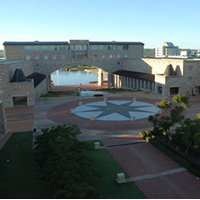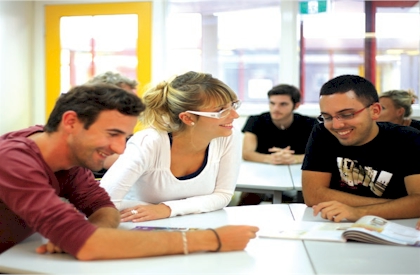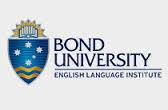Translate This Page
Learn English in Australia
Studying in Australia isn't just about improving your English. It’s about having fun, making friends and discovering Australia. Courses are structured to allow you to improve English through working, living and leisure activities and exploring this amazing country.
Contact us for further details!
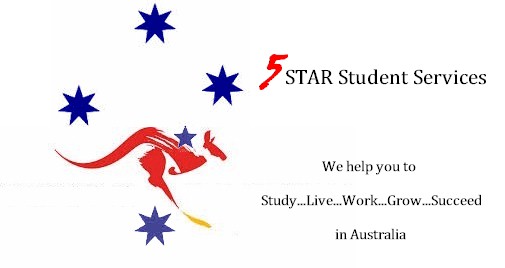
In 2013 147,828 international students undertook English language courses in Australia. 62% of these held student visas , 19% visitor visas and the remaining 19% working holidays & other visas. * Source: English Australia
FAQs
Where should I study?
If you are looking for somewhere that is totally different from home, Queensland is the place to study. The colleges are not too big so it is easier to talk to other students, teachers and make good friends.
Most campuses are located near beautiful beaches in centres that have a low population, but are close to modern yetnot too big cities with all the facilities you require. The weather is pleasant all year round! The pace of life is slow so everybody is calm, friendly and relaxed!
Where will I live?
It is easy to find somewhere affordable to live within a short walking distance of campus and close to your friends - with people who are friendly and relaxed making it a comfortable environment in which to live and study.
At first you may find it better to live with a Homestay family for a couple of months. Homestay families will provide a caring and secure living environment – a home away from home while you get to meet new people. When you make some friends you could consider alternatives such as:
- Living with friendly Aussies and other international students in a share house
- Sharing a studio apartment or house together with another friend or even
- Working for free accommodation.
There are many options which will create an environment where you can practise and improve your English!
What are the Teachers like?
The students and teachers' relationships are typically close because of the small class numbers. This helps create an atmosphere where you will feel comfortable to speak to the teachers and ask questions. They are helpful, committed, friendly, kind, patient and make the lessons fun, challenging and interesting which in turn makes learning English much easier.
Teachers may also assist students find jobs by helping them build their confidence, helping with their resumes, providing references and arranging interviews.
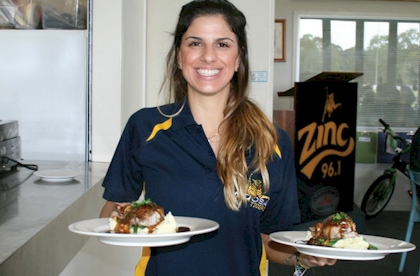
Can I do Part Time work?
Obtaining a part time job that suits your study schedule is a great way to improve your English as you will be required to converse in English with staff and customers. It will also enable you to obtain extra money to support your lifestyle, save for travel, make friends, meet new and interesting people and experience the Australian culture. You will also find that people from different nationalities are not that different – we have similar needs, wants and desires!
A major benefit for an Australian student visa is that you are allowed to work up to 40 hours per fortnight.
If you have relevant skills, knowledge and experience from work in your home country you should find it easy to obtain work in a similar occupation e.g. beautician, chef, horse trainer, dancing or tennis instructor.
For those who do not have previous skills you can often find unskilled work and work your way up. Typical jobs for students are:
- Fruit, nut and vegetable pickers
- Farm hand
- Waiter or waitress at a bar, cafe or restaurant
- Kitchen hand at a restaurant
- Help at a nursing home or retirement village
- Construction labourer
- Retail assistant
- Cleaner
To find a job in Australia, all you need to do is to hand out a resume, be introduced by a friend who is leaving a job or be referred by an Australian who knows you. You can also look for jobs on notice boards or on websites such as Seek and Gumtree. To find a job you must be active, persistent, dedicated, polite and try hard.
5STAR Student Services runs FREE workshops to help people get a job. The workshops cover such things as writing a resume, looking for a job and making a good impression at the interview. Attending the workshop will give you the confidence to go out and apply for work and secure a job quickly.
In Australia, if you are prepared to have a go most people will give you a go! Do not worry that your English is not perfect. Most people are tolerant, kind and friendly so they are only too happy to help if you make a mistake with your English!
What Programs are available?
The English language programs are very flexible in terms of pathways and so cater for a variety of needs and levels (preliminary, intermediate, advanced). Examples of some of the options available are:
- 3 to 6 months General English and then progress through to a 12 week IELTS Preparation Course
- 3 to 6 months General English and then progress through to a 11 week Cambridge Preparation Course
- General English for 17 weeks
- Cambridge CAE Course for 11 weeks
- English for Academic Purposes and then progress through to a 12 week IELTS Preparation Course
Further information about these and other courses are included below.
What will do we do during breaks?
There are many activities often arranged by the school which will give you the opportunity to enjoy Australia’s great outdoor lifestyle, have fun together and make new friends. Proximity to the beautiful beaches provides the opportunity to surf, fish and swim every day or participate in group activities such as beach volleyball and barbecues. At night, you can go to a restaurant, see a movie or go to a pub or club for a drink or dance the night away!
During the day you can go out for a coffee to catch up with your friends, go shopping or go to an outdoor concert, anevent or the races.
You may choose to join a local sporting club such as soccer, netball or touch football so you can meet more Aussies and become immersed in the Australian culture.
There is always something to do all year round!
What have previous students said?
When asked about their stay in Australia, overseas students comment that:
They have really enjoyed their stay here because they had fun with so many great and unique experiences. It is not uncommon to feel a little homesick at first, especially if you are away overseas over traditional family times such as Christmas. These feelings of loneliness soon pass once you make friends and become involved in the Australian way of life. Internet facilities such as Viber, Skype and Facebook make it easy to stay in touch with those at home.
Many students start with little or no English. As they become more immersed in the local community, study and work their English skills will naturally improve. It is not uncommon, to start with a basic course and to progress to higher levels then find a job as their confidence improves.
Australia is very multicultural so students are likely to meet many interesting people and make friends with others from all around the world and thus learn about different cultures. Most students report feeling very comfortable, safe and happy here!
People who study in Australia say that they will never forget their experience here and often want to return to further their studies or seek permanent residency. Even if they don’t return, memories of their visit here will stay with them for the rest of their life!
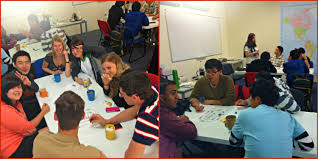
What do you do after you graduate?
Students whocome to Australia to improve their English have varying goals post their study. Some typical goals include:
- Use their upgraded English skills to obtain a better job at home or in another country
- Travel further abroad or around Australia before they return home
- Experience a different culture and way of life
- Immigrate to Australia
- Pursue a specific occupation
- Obtain a higher education qualification
TYPES OF COURSES
English Language Intensive Courses for Overseas Students' programs are available to suit the following needs:
- General English
- Secondary School Preparation
- Examination Preparation
- English for Specific Purposes (ESP)
- English for Academic Purposes (EAP)
- Short Courses for non-student visa holders
1. General English
These courses help to improve English skills in reading, writing, listening and speaking. Students can enter at any level, from elementary to advanced, then progress at their own pace.
Students are generally tested and placed in an appropriate class level at the start of their studies. Classes at each level focus on everyday English and often include a variety of activities.
General English is suitable for individuals or for holiday groups and as preparation for the English for Academic Purposes courses.
2. Secondary School Preparation
These programs are generally designed to:
develop speaking, listening, reading and writing skills
inform students about the education system in Australia
familiarise students with teaching methodologies they will encounter in their secondary studies
introduce specific subject areas
assist with subject selection.
3. Examination Preparation
While not offering formal qualifications, many English courses focus on preparing students for external English proficiency examinations such as:
- Cambridge exams (PET, FCE, CAE, CPE, & BEC), which are the most popular
- the IELTS exam
- the TOEFL exam
- the TOEIC test
These courses are generally provided for students aged 17 and above and involve intensive test practice. They cater to people who wish to:
- enter educational institutions
- work in English-speaking countries
- Obtain a qualification that is valued by employers in their home country
4. English for Specific Purposes
These courses are generally specialised to meet a specific student need for technical English proficiency. They are often designed specifically for a small student group with similar needs. Courses that are less than 13 weeks in length are often taken while on a tourist visa.
This category also includes "Business English" courses that are designed for adults seeking job specific English language training. Generally the courses are intensive and focus on improving the student’s use of English in the workplace. Most programs expect students to arrive with strong general English skills and generally start at intermediate and move through advanced levels.
5. English for Academic Purposes (EAP)
EAP courses are designed to help students succeed in university studies by improving their English and academic study skills. They also help students achieve the level of English language proficiency needed to undertake tertiary studies at Australian and International universities (usually around IELTS 6.0 or 6.5, with no sub-band lower than 6.0. Some programs in Health, Teaching and Law might require international students to have an IELTS score of 7. Entry into a Diploma course usually requires an IELTS score of 5.5, with no sub-band lower than 5.0.
EAP programs are generally offered as full-time courses of approximately 10 weeks for each module.
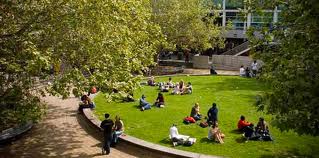
6. Short Courses for non-student visa holders
Students may obtain a tourist visa to study English for less than 3 months, or if on a working holiday visa, study a maximum of 4 months. These students may undertake the same programs and classes as student visa holders. Note that students studying for less than four months can still apply for a student visa if they wish to.
If the students come as a group, then they can have a specific program tailored for them. This is usually known as a 'study tour'.
STUDY TOURS
Short-term study tours (that provide a combination of ELICOS - EAP and vocational training) are also available.
Study tours give students and staff from various educational and government organisations travelling to Queensland the opportunity to learn English and to take part in VET (Vocational Education and Training) courses. Study tours can cover an extensive range of vocational subjects to suit a wide range of clients. The combination of vocational classes and English language are very popular and can include extra or specific topics.
Benefits
This study tour design provides real benefits to international students as they can make real improvements to their English proficiency and understanding of Australia. The EAP course will enable them to receive an award and achieve the minimum IELTS requirements for their chosen course of study. At the same time, they will gain an appreciation of what it would be like to study, live and work in Australia. The tour program will achieve this through a combination of face-to-face classroom training, homestay living, visits to industry, institutions and excursions relevant to their interests. The aim is to maximize education as a result of experiential learning.
Cost
Study Tour costs will vary depending on the level and length of course and location of Institution. ELICOS course tuition typically costs around A$320 per week or A$3,200 for a 10 week program. The full cost of a 12 week study tour program for international students is normally around A$9-10,000 including all tuition, transport, accommodation, meals, excursions and IELTS testing.
Timing
Study Tours are scheduled to be completed before Semester cut-off dates to ensure those who qualify and want to enrol in higher vocational courses or university courses can!
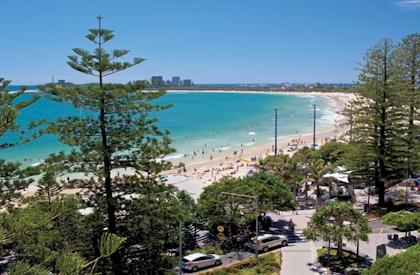
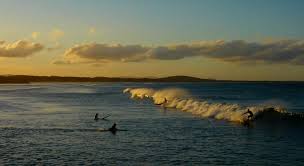
English Language Requirements for Student Visas.
Demonstrating adequate English proficiency is an essential requirement for all student visa applications. The DIBP requires you to take a recognised English language proficiency test before you submit your visa application. Recognised English proficiency examinations are:
- Cambridge exams (PET, FCE, CAE, CPE, & BEC), which are the most popular
- the IELTS exam
- the TOEFL exam
- the TOEIC test
If you are applying under Streamlined Visa Processing (SVP ) arrangements, you will only need to show that your level of English is accepted by the education institution regardless of your country of origin.
Further details are available by accessing information from DIBP regarding Studying in Australia.
ELICOS
English Language Intensive Courses for Overseas Students (ELICOS ) training commonly takes place in dedicated colleges or centres. These centres are completely focused on the needs of international students so they have highly developed support services for such students.
ELICOS courses can be either taken by students as a stand-alone course or as the first in a pathway of courses leading to formal qualifications in the other sectors.
ELICOS students typically come on a student visa, a tourist visa or a working holiday visa. People on a tourist visa are permitted to study for a maximum of three months and those on working holiday visas for a maximum of four months.
Often ELICOS courses are taken in sequence with formal courses of study in other sectors. They are packaged together with one or more courses. Sometimes these further courses are offered at the same institution.
There are about 300 accredited ELICOS centres (independent, high school, TAFE College or university) located in Australia's major cities as well as in a range of regional locations.
Contact us Now to commence your journey!
Copyright © 2014 Electronic Business Solutions Pty Ltd All rights reserved.
